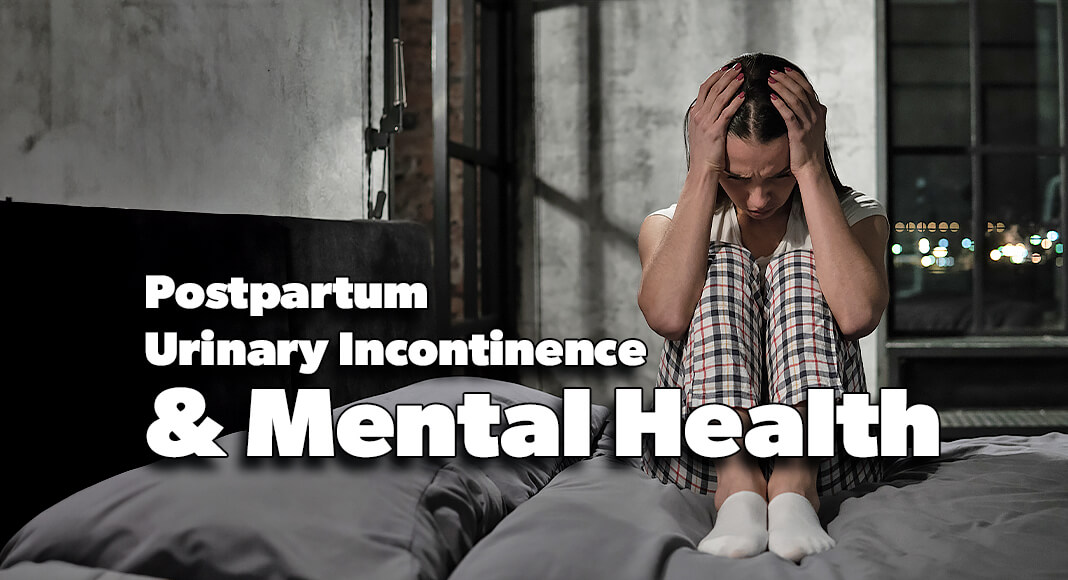
Mega Doctor News
By UT Southwestern Medical Center
Newswise — DALLAS – A UT Southwestern Medical Center study of hundreds of underserved women showed that depression and anxiety, in addition to physical factors such as a higher body mass index and previous births, are associated with lingering postpartum urinary incontinence. The findings, published in Urogynecology, shine a spotlight on these conditions that can carry stigmas but are largely treatable, researchers say.

“Our study draws a bridge between two vital components of health care that are often overlooked and neglected: postpartum care and mental health,” said Sonia Bhandari Randhawa, M.D., a second-year Urogynecology fellow at UT Southwestern. Dr. Bhandari Randhawa co-led the study with David Rahn, M.D., Professor of Obstetrics and Gynecology at UTSW.
Dr. Bhandari Randhawa explained that in October 2020, clinicians from UT Southwestern and Parkland Health launched Extending Maternal Care After Pregnancy (eMCAP), a community-based program that provides care to underserved women in Dallas County for a year after they give birth. Women enrolled in the program undergo a baseline assessment after delivery, then have check-ins at frequent intervals for the next 12 months. The patients undergo physical exams and answer questions on various physical and mental health conditions for treatment or referral purposes.
Curious about potential overlaps between postpartum urinary incontinence and mental health in this group, Drs. Bhandari Randhawa and Rahn and their colleagues assessed answers provided by 419 eMCAP patients 12 months after they gave birth as part of validated surveys designed to assess urinary dysfunction, anxiety, and depression. They looked for connections among these conditions and with other factors, such as demographic and economic data, maternal age, number of previous births, body mass index, fetal birth weight, and mode of delivery.

The data showed that urinary incontinence was common. About 1 in 3 participants had stress urinary incontinence, a condition marked by leakage from sudden movements such as coughing, sneezing, or jumping. About 1 in 6 had urgency urinary incontinence, or leakage after a sudden and intense need to urinate, even if the bladder isn’t full. And 1 in 9 had overall bothersome urinary symptoms.
Neither stress urinary incontinence nor urgency urinary incontinence in these participants was linked to some traditional factors, such as large babies or complicated births. However, stress urinary incontinence was significantly associated with both a higher body mass index at birth and elevated scores on the depression questionnaire. Urgency urinary incontinence was significantly associated with both a higher number of previous births and elevated scores on the anxiety questionnaire. Generally bothersome urinary symptoms were associated with both a higher number of previous births and elevated anxiety scores, the study showed.
The connection between urinary incontinence and mental health is a “chicken and egg problem” not addressed in the study, Dr. Rahn said. However, previous studies have shown a link between the stigma of urinary incontinence and worse mental health. “If you have bad enough incontinence, you might feel isolated and embarrassed and have difficulty connecting socially. It’s not hard to imagine how urinary incontinence might lead to mental health struggles,” he said.
Dr. Bhandari Randhawa added that the study could encourage medical care providers to inquire about urinary incontinence and mental health at postpartum appointments. “It’s so important for providers to ask questions about urinary incontinence, depression, and anxiety, even if they don’t have time to discuss these topics in depth,” she said. “Having the right referral for these treatable conditions can make a huge difference in patients’ lives.”
Other UTSW researchers who contributed to this study include Catherine Spong, M.D., Chair and Professor of Obstetrics and Gynecology; David B. Nelson, M.D., Associate Professor of Obstetrics and Gynecology and Division Chief of Maternal-Fetal Medicine; Elaine Duryea, M.D., Associate Professor of Obstetrics and Gynecology and Chief of Obstetrics at Parkland Health; Jessica Pruszynski, Ph.D., Associate Professor of Obstetrics and Gynecology; and Andrea Rizkallah, M.D., postdoctoral researcher.
Dr. Nelson, who leads eMCAP, is a Dedman Family Scholar in Clinical Care and holds the Gillette Professorship of Obstetrics and Gynecology. Dr. Spong holds the Paul C. MacDonald Distinguished Chair in Obstetrics and Gynecology.
This study was funded by the Health and Human Services Racial Equity in Postpartum Care Challenge, Phase I award, and the UT Southwestern Program for the Development and Evaluation of Model Community Heath Initiatives in Dallas.
About UT Southwestern Medical Center
UT Southwestern, one of the nation’s premier academic medical centers, integrates pioneering biomedical research with exceptional clinical care and education. The institution’s faculty members have received six Nobel Prizes and include 25 members of the National Academy of Sciences, 21 members of the National Academy of Medicine, and 13 Howard Hughes Medical Institute Investigators. The full-time faculty of more than 3,100 is responsible for groundbreaking medical advances and is committed to translating science-driven research quickly to new clinical treatments. UT Southwestern physicians provide care in more than 80 specialties to more than 120,000 hospitalized patients, more than 360,000 emergency room cases, and oversee nearly 5 million outpatient visits a year.
About Parkland Health
Parkland Health is one of the largest public hospital systems in the country. Premier services at the state-of-the-art Parkland Memorial Hospital include the Level I Rees-Jones Trauma Center, the only burn center in North Texas verified by the American Burn Association for adult and pediatric patients, and a Level III Neonatal Intensive Care Unit. The system also includes two on-campus outpatient clinics – the Ron J. Anderson, MD Clinic and the Moody Outpatient Center, as well as more than 30 community-based clinics and numerous outreach and education programs. By cultivating its diversity, inclusion, and health equity efforts, Parkland enriches the health and wellness of the communities it serves. For more information, visit parklandhealth.org.










